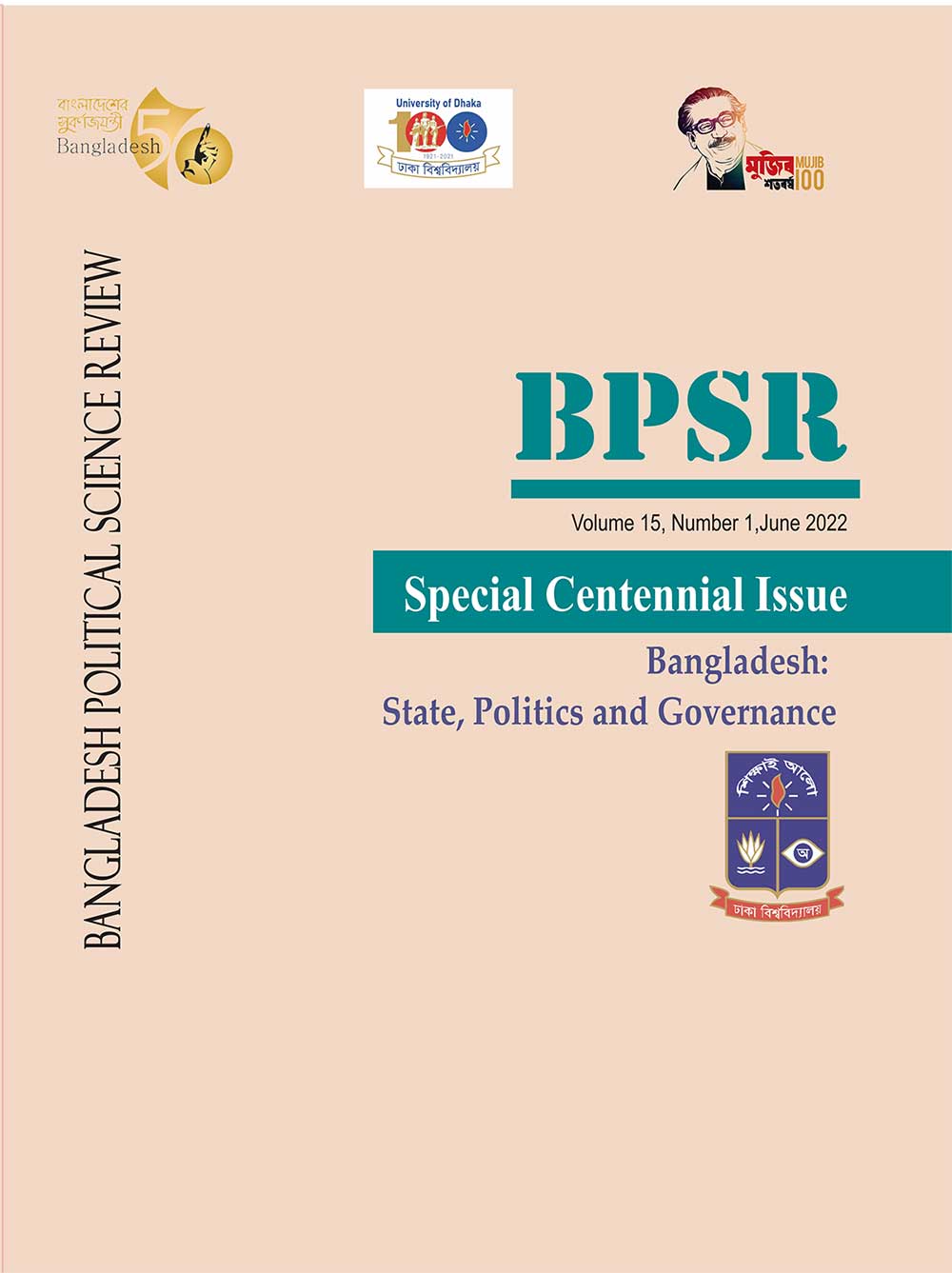
BANGLADESH POLITICAL SCIENCE REVIEW
Securitization of Cross-border Population Movements
- Tasneem Siddiqui*
Published: 14 October 2022
Bangladesh Political Science Review
Volume 15, Number 01, June 2022
DOI : https://doi.org/10.57074/RTYI6923
ISSN 1609-7289 (Print)
ABSTRACT
This paper examines three examples of the securitization of cross-border population movements within a few selected countries of South and South East Asia. These cases include: a) the forced movement of the Rohingya population form Myanmar to Bangladesh; b) the movement of the Bengali population from Bangladesh and West Bengal to the Assam State of India; and c) the labour migration between India and Bangladesh. It employs Barry Buzan’s ‘Non-Traditional Security’ and ‘Securitisation’ framework. It first identifies why these destination countries have securitized migration, then locates the process through which states, as well as political parties, student groups, and several other sections of the civil society of the destination countries, have securitized migration through different types of ‘speech acts.’ The paper demonstrates that securitization failed to resolve the challenges thrown up by the forced and voluntary population movements between these countries. Rather, it severely compromised the human security of those men, women and children who were forced to move or voluntarily engage in labour migration.
Keywords: Non-traditional security, securitization, speech act, human security, migration, population movement.
Notes on Contributor
* Tasneem Siddiqui, PhD, Professor & Chairperson, Department of Political Science, University of Dhaka and Founding Chair, Refugee and Migratory Movements Research Unit (RMMRU), Dhaka, Bangladesh, tsiddiqui@du.ac.bd.
